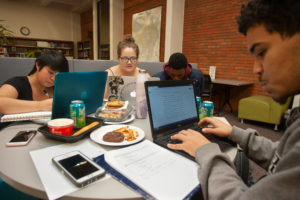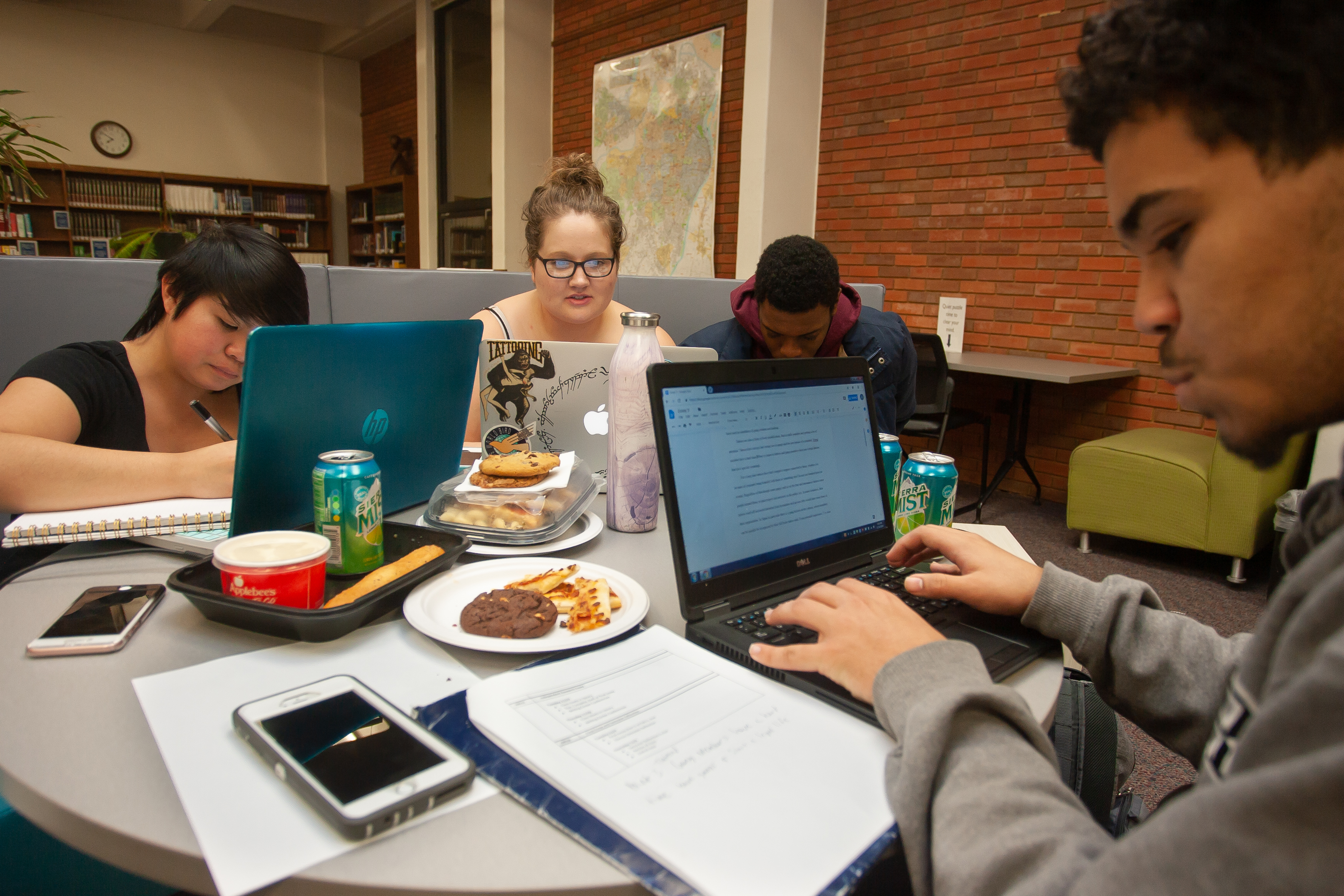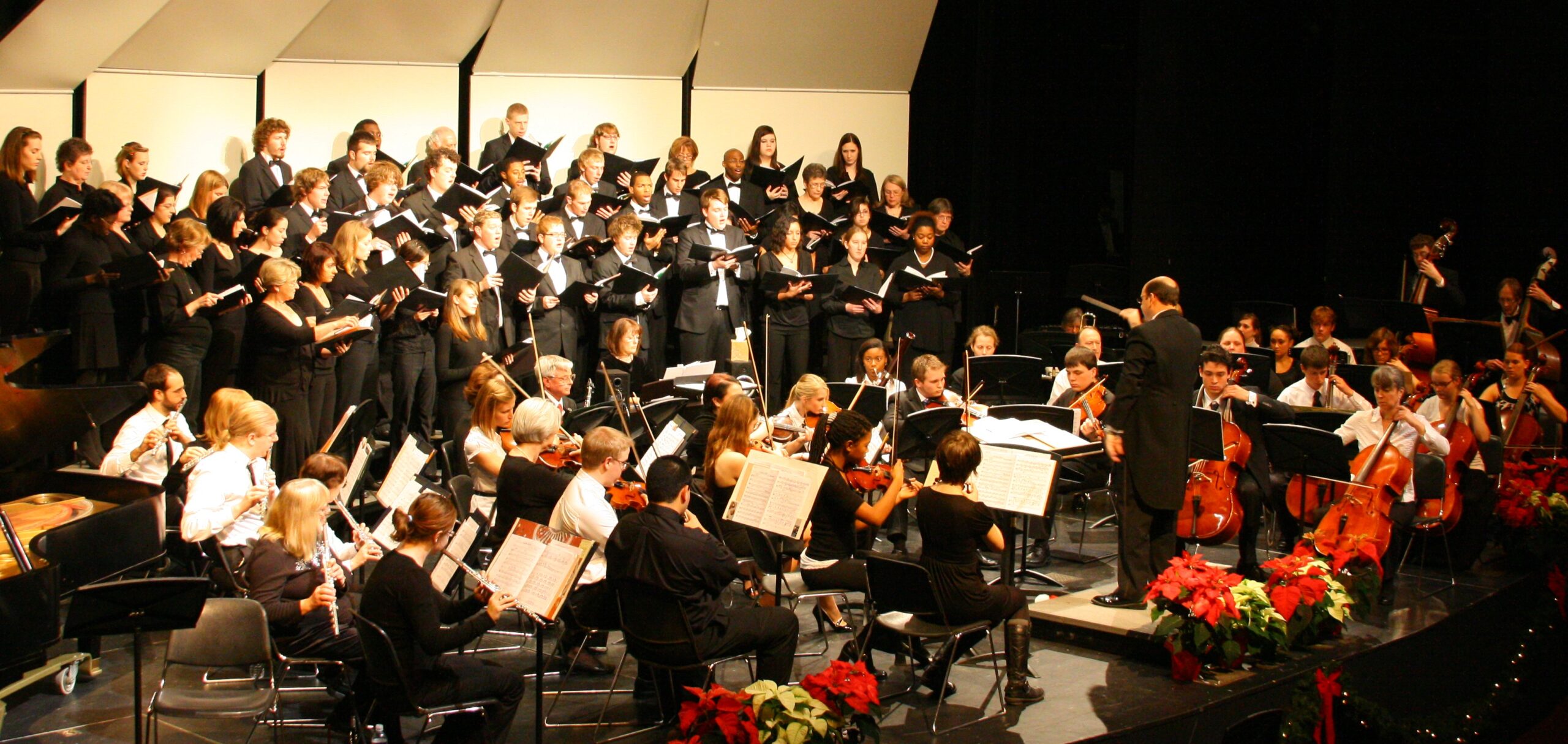A night of study tips and tomato clocks
BY: LAUREN JOHNS
Art & Life Editor

On Nov. 14, STLCC’s library and academic support staff held the “Long Night Against Procrastination” event.
While this event occurs at other campuses nationwide, it was Meramec’s first go. Free pizza, cookies, sodas and hot chocolate were provided. The first 72 students who RSVP’d for the event were given specialty mugs.
“We only have two weeks of classes after Thanksgiving break, so we wanted the students thinking about what they can accomplish now and what they have coming up,” said Cindy Claussen, Manager of Academic Support. “We have research help, librarians, chemistry, biology and math tutors all here until 2 a.m. rocking it out.”
At around 7:15 p.m., Claussen began a presentation on the overarching theme of the night — the ‘Pomodoro Technique:’ A six step plan meant to boost productivity and keep students focused.
“Francesco Cirillo was a college student that felt like a hot mess compared to others when it came to studying,” said Claussen. “So, he started using timers. In Europe, the kitchen timers are shaped like tomatoes, hence the name ‘Pomodoro’ (Italian for tomato).”
According to Claussen, students pick a task and go online to set a timer for 30 minutes at Pomodoro-tracker.com. After the time is up, they can take a five minute break to get coffee or take a brief walk. The process is repeated until finished, leaving a check mark for each Pomodoro completed. Once four of them have been completed, the student can take a longer break, up to 30 mins.
“Your brain constantly wants to get you away from the tasks at hand,” said Claussen. “If you think of anything else you have to do, write it down for later.”
Board games were provided for those with longer breaks. Aside from the games and study tips, several students commented on how the overall event had a positive influence on their productivity.
“I love that there are specific tutors for whatever we need,” said Lily Polley, a Meramec student. “It can be difficult to have friends here but you can support and encourage one another. Also, there’s free food, fuel for studying.”
Maria Stoentcheva was especially motivated. “My goal is to get all my Bio homework done: flashcards, read all the chapters, and possibly knock out four pomodoros,” Stoentcheva said. “Then, move to other subjects if there’s time.”
On the other hand, some students were more focused on having a good time.
“Honestly, I’ll probably just get caught up in the fun of it all and take advantage of the games,” said student Curtis Ortermund.
Unfortunately, the weather put a damper on the festivities.
Joe Conroy, a math tutor, planned to leave early due to the snowstorm predicted at 12 a.m. “I’ve been helping students prepare for math tests and final exams but I can only stick around until 10 p.m.,” said Conroy.
Aside from mathematics, Elizabeth Busekres, Supervisor of College Writing Center, worked to help students get a head start on research papers.
“People have a habit of procrastinating on long research papers,” said Busekres. “You can’t necessarily get an entire six to eight page paper done in one sitting, but you can at least get a start on it.”
According to Busekres, students often struggle to come up with ideas or get their thoughts down on paper.
“We are big on discussion and we ask a lot of questions so that when students leave, they’ll have ideas on paper,” said Busekres. “If they have no clue what to write about, we help them make a list of topics they are passionate about. If they are lacking research, we refer them to the reference librarians downstairs.”
In addition, the Writing Center gives handouts on any topics students may need, such as APA and MLA citations, forming thesis statements, and common grammar mistakes.
“At the beginning of the night, I discussed ‘graphic organizers’ and how to use them for effectively structuring your essay,” said Busekres. “This specific type of outline is a ‘brainstorming map’ to help you see where you may need additional research and what your main points are.”
The library wide event was funded by the provost, Carol Lupardus. According to Claussen, she and other staff members applied for the ‘President’s Initiative’ which is set aside for student support events like these.
“We had 90 RSVPs, which is more of a turnout than we could’ve expected,” said Claussen. “However, the weather kept turnout low. If the event had gone until 2 a.m., I would’ve encouraged more people to try the ‘Pomodoro technique,’ but I erred more on the fun part and didn’t get too crazy academic.”












